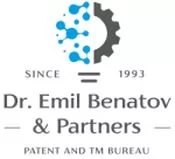Intellectual property rights are valuable assets to any business. A patent or utility model protects new technologies and methods and establishes a monopoly over them. Trademarks protect a brand and ensure that only the brand owner can use it. Industrial design rights, in turn protect the exterior appearance of a product and establish a monopoly over that particular design. Owning IP rights can lead to significant commercial advantages and in turn, higher revenues and profits.
Unfortunately, many businesses do not fully take advantage of IP rights. In this article, we will list some of the most commonly encountered mistakes that businesses make in this field, and we will give some suggestions on how to avoid them.
- You do not know if you have intellectual property rights that can be protected.
Get educated about the different Intellectual property rights and consult an expert, in order to understand what your business owns that can be protected. Each acquired IP right can be an opportunity for better commercial performance.
- You do not include Intellectual Property in your business model
Without IP protection, the competition can easily copy your products and brands. This is why, it is important to integrate the protection of your Intellectual Property in your business model, alongside research and development, production and marketing, as an essential element of your business processes. If you do not protect your assets at the right time, it may later lead to problems which are difficult, or even impossible, to resolve.
- You show your invention to the world before you have filed a patent application
In Europe, an invention can be patented only if it has not been made publicly available before the application date. Generally, if the invention was publicly available in any location in the world before that date, the right to file for a patent is lost. Consult with a patent attorney as early as the research and development stage in order to be certain that you will not lose your rights.
- You don't know if your products infringe on others' rights.
Your products and inventions may contain earlier technologies. It's possible that such technologies are patented by other persons. Infringing on earlier rights can lead to your production and sales being halted, as well as your business incurring potential liability for fines and damages. A Freedom to operate search will help you find any earlier patent rights which may pose a problem and can help you determine how to proceed.
- You use brand names without having searched or registered them
The owners of earlier similar trademarks can forbid your use of a brand name and potentially sue you for damages. A trademark search will find out whether there are earlier similar trademarks and will give you an opportunity to adapt your brand, before you make investments in marketing and production. Trademark registration will in turn allow you to prohibit other market participants from using your brand or a confusingly similar one.
- You do not use industrial design rights
Industrial design rights are a cheap, quick and easy way to protect a product that has an appearance that is new and has individual character. The specific appearance of the product will be available only to you, and other market participants will not be able to copy it.
- You do not protect all aspects of your products.
Trademarks, patents and designs protect different aspects of a product. When all aspects are protected, even if the competition can overcome one of them, your commercial advantage can be preserved via the others. For example, even if a popular medical drug's patent protection expires, having a powerful brand, protected with a trademark, means that consumers will continue to recognize and purchase this brand, as a guarantee of origin from the original producer.
The content of this article is intended to provide a general guide to the subject matter. Specialist advice should be sought about your specific circumstances.

